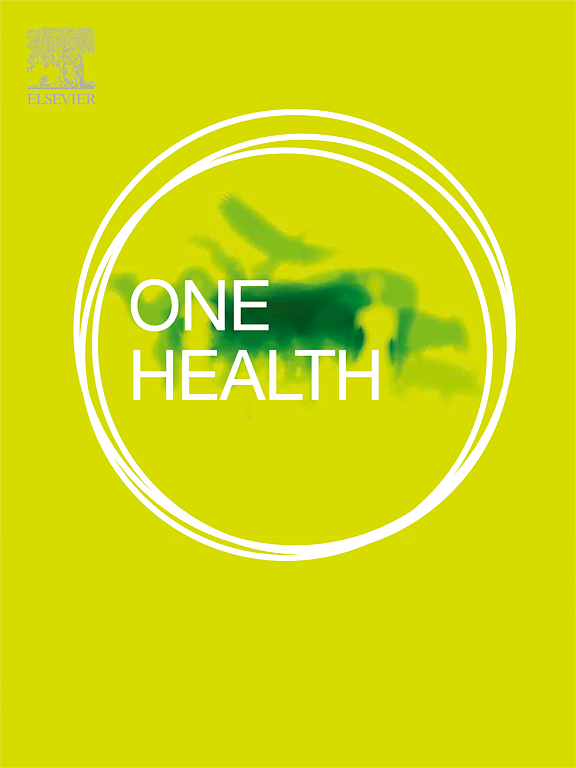Putting one health to the test: Operational challenges and critical reflections from the global South
IF 4.1
2区 医学
Q1 INFECTIOUS DISEASES
引用次数: 0
Abstract
One Health as a policy framework to tackle zoonoses has gained wide-ranging validation with multiple international organizations throwing their collective might behind it. Such endorsement has convinced several governments to adopt One Health as a national strategy to address zoonoses. Although some argue that One Health is so many things that there are in fact multiple ‘One Healths’, others find that most international policy documents that use the One Health framing contain certain key recommendations, with intersectoral coordination and disease surveillance prominent among them. In this paper we examine whether and how One Health travels in a sub-national setting in a developing country context such as that of India, with particular focus on intersectoral coordination. We draw on documentary analysis, semi-structured interviews, and workshops with government officials across key sectoral agencies at the district level, to understand prevalent institutional mechanisms in place to address zoonoses in such a setting. We locate our study in the district of Gyalshing in the state of Sikkim in India, which is a potential zoonoses ‘hotspot’ given its location within the biodiverse Indian Himalayan Region, with numerous avenues for human-animal interactions, and burgeoning human population linked to its tourism-run economy. We outline successful cases where certain zoonotic diseases could be tackled, while also highlighting structural constraints that need to be borne in mind while planning or advocating One Health as a blanket policy prescription. In doing so, we draw attention to the political dimensions of global health policies, and question whether One Health can be uncritically deployed in developing country contexts.
检验一种健康:来自全球南方的业务挑战和关键反思。
“同一个健康”作为应对人畜共患疾病的政策框架,得到了多个国际组织的广泛认可,并为其提供了集体力量。这种认可已说服一些国家政府采用“同一个健康”作为应对人畜共患病的国家战略。尽管一些人认为,“同一个健康”是如此之多,实际上存在多个“同一个健康”,但另一些人发现,大多数使用“同一个健康”框架的国际政策文件都包含某些关键建议,其中突出的是部门间协调和疾病监测。在本文中,我们研究了“一个健康”是否以及如何在印度等发展中国家的次国家环境中传播,并特别关注部门间协调。我们利用文献分析、半结构化访谈和与地区一级主要部门机构的政府官员举行的讲习班,了解在这种情况下应对人畜共患病的普遍体制机制。我们将研究地点设在印度锡金邦的贾兴地区,鉴于其位于生物多样性丰富的印度喜马拉雅地区,这里是一个潜在的人畜共患病“热点”,有许多人与动物互动的途径,以及与旅游业经济相关的人口增长。我们概述了某些人畜共患疾病可以解决的成功案例,同时也强调了在规划或倡导“同一个健康”作为一揽子政策处方时需要牢记的结构性限制。在此过程中,我们提请注意全球卫生政策的政治层面,并质疑在发展中国家背景下是否可以不加批判地部署“同一个健康”。
本文章由计算机程序翻译,如有差异,请以英文原文为准。
求助全文
约1分钟内获得全文
求助全文
来源期刊

One Health
Medicine-Infectious Diseases
CiteScore
8.10
自引率
4.00%
发文量
95
审稿时长
18 weeks
期刊介绍:
One Health - a Gold Open Access journal.
The mission of One Health is to provide a platform for rapid communication of high quality scientific knowledge on inter- and intra-species pathogen transmission, bringing together leading experts in virology, bacteriology, parasitology, mycology, vectors and vector-borne diseases, tropical health, veterinary sciences, pathology, immunology, food safety, mathematical modelling, epidemiology, public health research and emergency preparedness. As a Gold Open Access journal, a fee is payable on acceptance of the paper. Please see the Guide for Authors for more information.
Submissions to the following categories are welcome:
Virology,
Bacteriology,
Parasitology,
Mycology,
Vectors and vector-borne diseases,
Co-infections and co-morbidities,
Disease spatial surveillance,
Modelling,
Tropical Health,
Discovery,
Ecosystem Health,
Public Health.
 求助内容:
求助内容: 应助结果提醒方式:
应助结果提醒方式:


